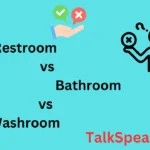When writing or speaking, the words you choose can significantly impact your message’s clarity and effectiveness.
Two words that are often confused due to their similar sound but have vastly different meanings are degenerate and denigrate.
Understanding the precise meaning and correct usage of these words is crucial for clear communication.
This article delves into the definitions, origins, common mistakes, and practical tips for using “degenerate” and “denigrate” correctly.
Understanding the Definitions
Before we dive into the detailed analysis, let’s start with the basic definitions of “degenerate” and “denigrate.”
Degenerate:
- As a noun: A person who has declined morally or ethically.
- As a verb: To decline or deteriorate physically, mentally, or morally.
- As an adjective: Having lost the physical, mental, or moral qualities considered normal and desirable.
Denigrate:
- As a verb: To criticize unfairly; to defame or belittle.
Detailed Analysis of “Degenerate”
Meaning and Usage
“Degenerate” is a versatile word used as a noun, verb, and adjective. Here’s a closer look:
As a noun:
- Example: “The society feared the rise of degenerates.”
- Explanation: Here, “degenerates” refers to individuals perceived as morally or ethically corrupt.
As a verb:
- Example: “The situation degenerated quickly.”
- Explanation: In this sentence, “degenerated” means deteriorated or declined.
As an adjective:
- Example: “He displayed degenerate behavior.”
- Explanation: “Degenerate” describes behavior that is morally corrupt or inferior.
Origins and Etymology
The word “degenerate” originates from the Latin “degenerare,” meaning “to fall from one’s ancestors’ qualities.” It combines “de-” (down from) and “genus” (birth, race, kind), indicating a decline from a former state of excellence.
Examples in Sentences
To better understand how “degenerate” is used, let’s look at some examples:
- Noun: “The once great empire was now a haven for degenerates.”
- Verb: “Without proper care, the pristine garden began to degenerate.”
- Adjective: “His degenerate actions shocked everyone.”
Detailed Analysis of “Denigrate”
Meaning and Usage
“Denigrate” is a verb that specifically means to unfairly criticize or belittle someone or something.
- Example: “They denigrated his achievements unfairly.”
- Explanation: “Denigrated” means they criticized his achievements in an unjust manner.
Origins and Etymology
The word “denigrate” comes from the Latin “denigrare,” which means “to blacken.” This term combines “de-” (completely) and “nigrare” (to blacken), symbolically referring to tarnishing someone’s reputation.
Examples in Sentences
Here are some examples to illustrate the use of “denigrate”:
- Verb: “The politician’s opponents tried to denigrate his efforts.”
- Verb: “She felt denigrated by the harsh comments about her work.”
Common Mistakes: Degenerate vs Denigrate
Spell-check and Autocorrect Issues
Spell-check and autocorrect tools often fail to catch context-specific errors. Here’s why:
- Degenerate vs. Denigrate: These tools might not flag the incorrect usage if the word is spelled correctly. Always review the context.
Contextual Confusions
Understanding the context is key to using these words correctly:
- Degenerate: Typically used to describe a decline or deterioration.
- Denigrate: Used to describe an act of unfair criticism.
Usage Comparison
Contextual Differences
Let’s explore the differences through examples:
- Degenerate: “The neighborhood began to degenerate after the factories closed.”
- Explanation: Describes the decline of the neighborhood’s condition.
- Denigrate: “It’s not fair to denigrate his efforts without understanding the challenges he faced.”
- Explanation: Refers to unfairly criticizing his efforts.
Impact on Meaning
Misusing these words can change the intended message:
- Incorrect: “The critics tried to degenerate his reputation.”
- Correct: “The critics tried to denigrate his reputation.”
- Explanation: “Degenerate” in the incorrect sentence confuses the meaning, as it implies a natural decline rather than an act of criticism.
Practical Tips for Correct Usage
Memory Aids and Mnemonics
To remember the difference:
- Degenerate: Think of degeneration or decline.
- Denigrate: Think of denigration or defamation.
Contextual Clues
Use the context of the sentence to choose the right word:
- Degenerate: Look for scenarios involving deterioration or decline.
- Denigrate: Look for scenarios involving criticism or defamation.
Additional Resources
For further reading and resources:
FAQ Section
What is the primary difference between “degenerate” and “denigrate”?
“Degenerate” refers to a decline in quality, whereas “denigrate” refers to unfairly criticizing someone or something.
Can “degenerate” be used as a verb?
Yes, “degenerate” can be used as a verb, meaning to deteriorate or decline.
Is “denigrate” always negative?
Yes, “denigrate” implies an unfair or unjust criticism, making it inherently negative.
Practice Exercises
Test your understanding with these exercises:
- Choose the correct word:
- The old mansion began to __________ over the years. (Degenerate/Denigrate)
- Critics often __________ the efforts of new artists. (Degenerate/Denigrate)
- Fill in the blanks:
- The community’s moral standards have __________ in recent times.
- She felt __________ by the unfair remarks.
Answers:
- Degenerate, Denigrate
- Degenerated, Denigrated
Conclusion
Understanding the difference between “degenerate” and “denigrate” is crucial for effective communication.
By knowing their definitions, origins, and correct usage, you can avoid common mistakes and convey your message accurately.
Always consider the context and choose your words carefully to ensure clarity and precision in your writing.
Additional Resources
Here are some tools and resources to help you further:
- Thesaurus: Useful for finding synonyms and avoiding repetition.
- Grammar Check Tools: Tools like Grammarly can help catch mistakes.
- Writing Guides: Books like “The Elements of Style” by Strunk and White offer timeless advice on writing.
By mastering the use of “degenerate” and “denigrate,” you enhance your language skills and ensure your writing is both clear and impactful.

As an experienced English teacher, I’m Jessica Thompson, here to make grammar and vocabulary simple and fun. Join me on TalkSpeaker as we explore the language together, one lesson at a time!



